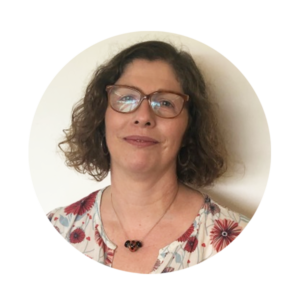Bookings closed.
Child and Adolescent Intellectual Disability Psychiatry Network (CAIDPN), and ACAMH, host this online conference bringing together different professionals mainly within CAMHS and Intellectual Disability presenting their latest work.
The event is open to all clinicians working in Child and Adolescent Mental Health and Intellectual Disability and other groups with special interest in the topics being presented.
It aims to present the knowledge and latest research by national and international experts. It would provide an opportunity to learn about novel developments, exchange ideas on key topics between clinicians/other professionals who have shared interests and facilitate a space to get together/socialise.
Highlights from the programme today include:
- Foetal alcohol spectrum disorder
- Trauma in children with neurodevelopmental disorders
- Short-term psychoeducation for carers to reduce overmedication of people with intellectual disabilities (SPECTROM)
- How to recruit and retain a good team
Organisers: Dr. Mini Pillay, Dr. Paula McLorinan, Dr. Annie Swanepoel
Programme
08:45 Online room opens for networking via the Chat facility
09:00 Opening Comments and Cultural Acknowledgement
Dr Paula McLorinan, Dr Annie Swanepoel, Dr Mini Pillay
09:10 Dr. Haydn Till ‘What we do and how we do it” – A Fetal Alcohol Spectrum Disorder (FASD) Specialist Assessment Clinic
Chair – Dr. Paula McLorinan
10:10 Logan Evolve Therapeutic Services ‘Working Between the Stools – Supporting Traumatised Children with Neurodevelopmental Disorders’
Chair – Dr Paula McLorinan
10:40 Break
11:00 Julie Blackaby & Wilana Brown ‘How to recruit and retain a good team’
Chair – Dr Annie Swanepoel
12:00 Lunch
13:00 Debbie Austin ‘A family carers perspective’
13:30 Sarah McFarlane ‘Collaborative working with the Parent forum’
Chair – Dr. Mini Pillay
14:00 Professor Shoumitro (Shoumi) Deb ‘Short-term Psycho-Education for Carers To Reduce Over Medication of people with intellectual disabilities and/or autism (SPECTROM)’
Chair – Dr. Mini Pillay
14:50 Break
15:05 Professor Shoumitro (Shoumi) Deb continues with his talk on ‘Short-term Psycho-Education for Carers To Reduce Over Medication of people with intellectual disabilities and/or autism (SPECTROM)’
Chair – Dr. Mini Pillay
15:50 Summary of day, closing comments – Dr. Paula McLorinan, Dr. Annie Swanepoel, Dr. Mini Pillay
16:00 Close
About the talks
Dr. Haydn Till ‘Gold Coast HHS Fetal alcohol spectrum disorder (FASD) Specialist Assessment Clinic’
Fetal Alcohol Spectrum Disorder (FASD) is one of the most prevalent, yet under-diagnosed neurodevelopmental disorder in children and adolescents. Prenatal alcohol exposure can impact the developing embryo and fetus, resulting in lifelong challenges in physical abilities, cognition, learning and behavior. This has significant consequences for the individual and their contribution to society; and has substantial cost implications for the health, education, and judicial systems. Whilst FASD affects between 2-5% of the population, some remote Australian First Nations’ communities have nearly four times (19%) that number. FASD (0-17 years) in Queensland currently costs approximately $53M in direct health care costs per year. The FASD Clinic at GCHHS was the first specialised multidisciplinary service in Qld. Commencing in 2014, the service has seen 500+ unique clients in over 4700 appointments and 12000 patient related hours, and has trained over 450 health practitioners to assess and diagnose FASD. The philosophy underpinning our assessment approach and model of care, and the supporting operational structure will be discussed as an exemplar of a specialised service. Tips for non-specialised services and solo practitioners, based on that philosophy and model of care will be provided.
Learning points:
- What it takes in an assessment to truly understand an FASD child’s needs
- How to work collaboratively to achieve that understanding (even as a solo practitioner)
- How to convey that understanding to stakeholders in a meaningful way
Julie Blackaby, Wilana Brown ‘How to recruit and retain a good team’
Julie’s and Wilana’s talk covers how, in these difficult times of COVID and austerity, how managers and senior clinicians can work, to firstly attract staff to apply to come and work in a team, and then provide an atmosphere that will encourage them to stay. They will share their thoughts on what has worked for their Team and look to think with the audience about how to balance the qualities needed for posts in an area that is very niche.
Learning points:
- Development of different tools to support learning.
- How do you provide development support, but also investment in the Team, enabling staff to feel connected and valued.
- This is not rocket science, small things can make the difference. However, it does take constant nurturing.
Sarah McFarlane ‘Collaborative working with the Parent forum’
- To recognise the effectiveness of collaborative working
- To demonstrate good practice
- To show how services can support each other
Professor Shoumitro (Shoumi) Deb ‘Short-term Psycho-Education for Carers To Reduce Over Medication of people with intellectual disabilities and/or autism (SPECTROM)’
Overmedication of people with intellectual disabilities and/or autism is a major public health concern. To respond to this NHS England has launched a major initiative, STOMP STAMP which was supported by a recent position paper published by the Royal College of Psychiatrists, UK. In the UK using co-production we recently developed the SPECTROM training programme for support staff to help reduce the overuse of psychotropic medication among people with intellectual disabilities and/or autism. SPECTROM teaches staff about medications, when they could be used and should not be used, their unwanted effects, the best ways to support people with intellectual disabilities and/or autism when they are distressed without using medications such as more positive engagement, appropriate communication with and understanding of the person, and their skills development instead of concentrating on their behaviour. Staff also learn how to handle their own stress and positively engage with families and other professionals including the prescribers. Field testing has shown significant improvement in staff knowledge and attitude following the training. SPECTROM web-based materials consist of (a) modules and (b) internal and external resources. Two core modules are (a) Medication/STOMP, and (b) Alternatives to medication (ATM). Each core module has several submodules within them (total 14 submodules). The core modules are delivered face-to-face/virtually through which the other submodules are introduced. Unlike traditional training SPECTROM is designed not for a one-off training session but for long-term learning through frequent reference to the materials during day-to-day person-centred care planning for people with intellectual disabilities and autism. Both the web-based modules and core training modules consist of didactic PowerPoint presentations, case vignettes, group discussions, group and individual activities, video clips, reference to external resources, and MCQs. Core modules accompany very detailed manuals and PowerPoint slides so that the training could be provided either online using the SPECTROM site directly or offline using a computer. Each core module also provides several handouts for the trainees and at the end summary points/take-home messages. The trainees are encouraged to explore the materials on the SPECTROM site in more detail as part of their homework. Our field testing has shown that each core module can be presented in one day with plenty breaks or even in four hours with one short break.
About the speakers
Dr. Haydn Till is a Registered Psychologist and Endorsed Clinical Neuropsychologist with the Psychology Board of Australia. He is currently the Advanced Clinical Neuropsychologist for Child Development Service – GCHHS with responsibilities as the clinical lead practitioner for the Fetal Alcohol Spectrum Disorder and Community Paediatric Clinical Neuropsychology clinics, research coordinator for FASD, and clinical training in Neuropsychology for students, interns and Registrars within the service. Dr Till has provided clinical care to individuals across the lifespan in private and public health, in both diagnostic and rehabilitation contexts. He holds Adjunct positions with Griffith University, Bond University and Macquarie University. Since 2011 Dr Till has held ministerial appointments on the Psychology Board of Australia – Qld Board, National Exam Committee, and Psychology Notifications and Assessment Committee. Dr Till is a member of the steering committee, clinical advisory committee, and guidelines development group for the current NHMRC funded redevelopment of the Australian Guidelines for the Diagnosis of FASD.

Julie Blackaby is the Team manager Southend, Essex (Colchester) and Thurrock CAMHS LD TEAM in North East London NHS Foundation Trust. She is a Learning Disability Nurse, and initially worked in Learning Disability Services in residential settings and then as a community sister in a community learning disability Team. In 2001, she moved to a post in the local CAMHS service as a neurodevelopmental and ADHD Nurse. In 2006 the CAMHS LD Team was formed, and she and Wilana Brown have worked together ever since to develop and maintain the service, which works with children with a severe to profound learning disability.

Wilana Brown is a Consultant Counselling Psychologist /Clinical Lead for Southend, Essex (Colchester) and Thurrock CAMHS LD TEAM. Wilana qualified in South Africa in 1992 and worked in private practice until moving to the UK in 2001. Wilana started working in South Essex CAMHS In 2002 in mainstream team until 2006 when she was appointed as a Consultant to develop the Learning Disabilities Offer in CAMHS. She remained the clinical lead and manager of CAMHS LD until expansion of the team across the County in 2018 afforded the funds to have a named clinical lead and team manager. She has close links with the University of Essex training course and supports counselling psychologists across SET-CAMHS through supervision and ongoing CPD support.
Evolve Therapeutic Services is a specialist Child and Youth Mental Health Service that works with young people aged 5-18years old who are in out-of-home care. We provide assessment and intervention to young people experiencing severe and complex mental health conditions. Evolve is comprised of a multidisciplinary team of Psychiatry, Psychology, Social Work, Occupational Therapy, Cultural Worker and Speech Pathology and services the Logan area in Queensland, Australia.

Professor Shoumitro (Shoumi) Deb
Shoumitro (Shoumi) Deb, MBBS, FRCPsych, MD is a Visiting Professor of Neuropsychiatry at the Imperial College London, UK. Prior to that he was a substantive full time Clinical Professor of Neuropsychiatry at the University of Birmingham, UK for many years. He led the development of the International (World Psychiatry, 2009,8(3),181-186) and the National Guidelines on the use of medication for behaviours that challenge among adults with intellectual disabilities and produced the first ever freely available online accessible psychotropic medication leaflets. He led the development of the first ever European Guideline for the assessment and diagnosis of mental disorders among adults with intellectual disabilities which has recently been updated (European Journal of Psychiatry, 2022,36,11-25). He was part of the group that developed the first ever evidence-based practice guidelines in intellectual disabilities in the UK NHS. He developed a screening instrument for dementia in people with intellectual disabilities (DSQIID), which has been translated into more than 24 languages and validated for worldwide use. He developed the first ever free online training programme, SPECTROM for support staff to help reduce the overmedication of people with intellectual disabilities. He has around 300 publications (citation index: 7324, h-index: 46, i10 index: 95 on 28.02.22); done over 250 conference presentations nationally and internationally including keynote speeches and chairing of sessions; received research grants from the UK NIHR, Wellcome Trust and other Charities; led a research/teaching team of over 14 staff; led several Masters’ courses in the UK Universities (Neuropsychiatry, Epilepsy, Psychological Medicine etc.), was the co-chair of SPID WPA, was a member of the WHO ICD-11 workgroup on intellectual disabilities, and was a member of several NICE guideline development groups in the UK.
About CAIDPN
CAIDPN is a group of psychiatrists across the UK and Ireland who work with children who have an intellectual disability and mental health needs. The role of the network is to encourage sharing of skills, knowledge and experience, to provide peer support. This includes working with academic partners to advance clinical research that will benefit the care and services for this group of young people. We aim to arrange four conferences each year which support continuing professional development and allow networking and peer discussion of complex cases.

